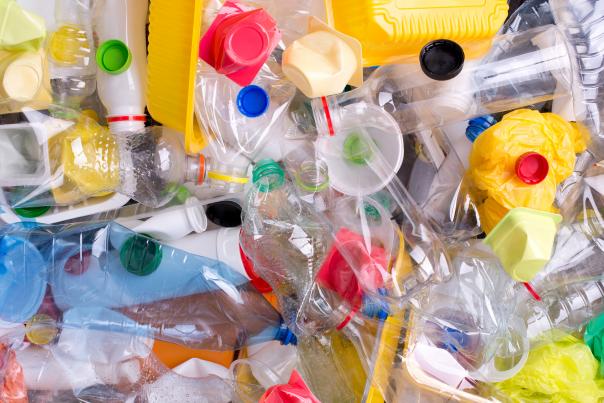
People between 18 and 24 are prepared to pay three times as much as over 65s.
The survey highlights the nation’s changing attitudes towards plastic usage and recycling. It ties in with Earth Day, which took place on April 22.
A major driver for the sea change in attitude appears to be Sir David Attenborough's series Blue Planet II, which revealed the state of plastic waste in the world's oceans.
Tom Domen, global innovation lead at Ecover, says: “As manufacturers, we believe we need to totally re-think plastic - how we make it, use it, re-use it and recycle it. We want to make it as easy as possible for people to make environmentally-friendly choices without compromise. We want to eradicate single-use plastic. And then we want to envision a world that is plastic-free.”
A fifth of the UK’s population have started using reusable shopping bags. One in six (16 per cent) have made more effort to recycle at work or at home, while 13 per cent have switched to products that use less packaging.
The study found that 36 per cent now back fines or taxes for industry if they don't take more responsibility. More than half (53 per cent) back a plastic bottle deposit scheme, while 42 per cent are calling for plastic-free aisles to be installed in supermarkets, with 83 per cent keen for product refills to be more widely available. One in 10 would even make it a criminal offence to throw recyclable material in a normal bin.
Calls for action come as environmental concerns increase across the UK. Exactly three quarters of British people are concerned about plastic in our oceans, while two-thirds (66 per cent) worry about plastic affecting wildlife. Furthermore, 39 per cent of us are now anxious about the presence of micro plastics in tap water and plastic in the food chain.
The survey also found that people who don't recycle cause resentment. More than a third of us (38 per cent) believe that people who don't recycle are as bad as those who drop litter in the street. One in 10 say they couldn't be in a relationship with someone who doesn't recycle.
Friends of the Earth plastic-free campaigner Julian Kirby says: “The public enthusiasm for action on plastic waste and recycling sends a powerful signal to government and industry that tougher action is not just needed, it’s wanted, too.
“While the government has taken small steps to target plastic pollution, it’s not enough to address the scale of action required to prevent plastics from choking our oceans. The government must listen to the public, phase out single-use plastic and draw up plans to end the use of all but the most essential plastics.”
Efforts are being made to recycle at home, according to the research, with two thirds of us (60 per cent) saying we recycle as often as we can. Homes in the North-East recycle the most (79 per cent), whereas the South-East is the worst at 55 per cent. Newcastle is the city that scores the highest in terms of people recycling as often as possibly, with 76% of the population contributing. Nottingham and Leeds were the second and third highest scoring cities.
However, there is still a level of confusion caused by the packaging the goods we buy come in with. More than a third of us (37 per cent) don't always know if products can or can't be recycled and put them in the general waste bin when in doubt, and seven in 10 of us are confused about what plastics we can recycle – 65 per cent wrongly believe clingfilm can go in the recycling bin, and 71 per cent incorrectly think that laminated rice pouches can be recycled.
As well as wanting more education on what can and can’t be recycled (45 per cent), respondents also said they want clearer labelling on products (56 per cent) to indicate the level of recycled content and recyclability, and more refillable products to come on the market (27 per cent). Those surveyed said they wanted to be able to buy products that don’t rely on plastic packaging (54 per cent), with 40 per cent calling for industry experimentation into bio-based alternatives to plastics.
Ecover is launching its first 100% recycled and 100% recyclable plastic washing-up liquid bottle, made from post-consumer recycled plastic such as that found in drinks bottles. The bottle is one of a series of commitments to help change the culture of using plastic as a disposable resource.
The cleaning product producer is also launching The Rubbish Café in May – a sustainable pop-up café experience in London where recyclable plastic is the only currency accepted.
Domen says: “The Ecover Rubbish Café will serve a delicious zero-waste menu from eco-chef Tom Hunt and will be kitted out with a stylish upcycled décor inspired by eco-designer Max McMurdo.
"The two-day pop-up will serve up inspiration and ideas for simple swaps we can all make to reduce, reuse and recycle plastic, whilst providing lunch in sumptuously upcycled surroundings.”